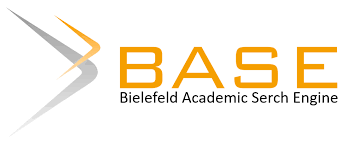KAPABILITAS SUPPLY CHAIN TERHADAP JARINGAN KEWIRAUSAHAAN, ORIENTASI KEWIRAUSAHAAN, DAN KINERJA UMKM
(1) Universitas Islam Kalimantan MAB Banjarmasin
(2) Universitas Islam Kalimantan MAB Banjarmasin
(3) Universitas Islam Kalimantan MAB Banjarmasin
(4) Universitas Islam Kalimantan MAB Banjarmasin
(5) Universitas Islam Kalimantan MAB Banjarmasin
(*) Corresponding Author
Sari
Kata Kunci
Teks Lengkap:
PDFReferensi
Abdallah, A. B., & Al-Ghwayeen, W. S. (2020). Green supply chain management and business performance: The mediating roles of environmental and operational performances. Business Process Management Journal, 26(2), 489-512.
Abu-Rumman, A. (2018). Gaining competitive advantage through intellectual capital and knowledge management: An exploration of inhibitors and enablers in Jordanian Universities. Problems and Perspectives in Management, 16(3), 259–268. Basuki, T Armanu, S and Achmad, 2013, The Role of Strategic Human Resource Management Practice Mediated by Knowledge Management on Service Quality (Study on the Public and Private Hospitals In South Kalimantan, IOSR Journal of Business and Management (IOSR-JBM) 11 (Issue 2), 58-71.
Basuki, 2020, Pengantar Metode Penelitian Kuantitatif, Penerbit Media Sains Indonesia, Bandung. Basuki, R Widyanti, I Rajiani, 2021, Nascent entrepreneurs of millennial generations in the emerging market of Indonesia, Entrepreneurial Business and Economics Review 9 (2), 151-165. Basuki, I Rajiani, R Widyanti, 2021, Boosting Sustainability Performance Through Supply Chain Quality Management In The Mining Industry, Polish Journal of Management Studies 24 (2), 41-54 Basuki, Widyanti Rahmi, M Mursanto, 2021, Kapasitas Knowledge Management Untuk Meningkatkan Kerjasama Dan Inovasi Dalam Perusahaan (Suatu Tinjauan Teoritis), AL-ULUM: Jurnal Ilmu Sosial dan Humaniora 7 (2)
Cho’, Y-H, & Lee, J.-H. 2018., Entrepreneurial orientation, entrepreneurial education and performance. Asia Pacific Journal of Innovation and Entrepreneurship, 12(2), 124–134.
Covin’, J-G, Wales, W., & J.2019., Crafting high-impact entrepreneurial orientation research: Some suggested guidelines. Entrepreneurship Theory and Practice, 43(1), 3–18. Covin, JG, & Wales, WJ 2012., The measurement of entrepreneurial orientation. Entrepreneurship Theory and Practice, 36(4), 677–702. Diamond Crisandhy Pellondou, Wahyuningsih Santosa, 2022, Pengaruh kemampuan integrasi rantai pasokan terhadap kinerja keberlanjutan dengan manajemen rantai pasokan hijau, Jurnal Ekonomi, Keuangan dan Manajemen, Vol 18, No 4
Frączkiewicz-Wronka, A., & Szymaniec, K. (2012). Resource based view and resource dependence theory in decision making process of public organisation-research findings. Management, 16(2), 16–29.
Hair, JF, Ringle, CM, & Sarstedt, M. 2013., Editorial-partial least squares structural equation modeling: Rigorous applications, better results and higher acceptance. Long Range Planning, 46(1), 1–12.
Henseler, J., Ringle, CM, & Sarstedt, M. 2015., A new criterion for assessing discriminant validity in variance-based structural equation modeling. Journal of the Academy of Marketing Science, 43(1), 115–135.
Hernández-Linares, R., Kellermanns, FW, López-Fernández, MC, & Sarkar, S. 2019., The effect of socioemotional wealth on the relationship between entrepreneurial orientation and family business performance. BRQ Business Research Quarterly.
Jiang, X., Liub, H., Fey, C., & Jiang, F. 2018., Entrepreneurial orientation, network resource acquisition, and firm performance: A network approach. Journal of Business Research, 87, 46–57.
Kanini, KS, & Muathe, SM-2019., Nexus between social capital and firm performance: A critical literature review and research agenda. International Journal of Business-and-Management,-14(8),70–82.
Kellermanns, F., Walter, J., Crook, TR, Kemmerer, B., & Narayanan, V. 2016., The resource-based view in entrepreneurship: A content-analytical comparison of researchers' and entrepreneurs' views. Journal of Small Business Management, 54(1), 26–48.
Kiyabo, K., & Isaga, N. 2020., Entrepreneurial orientation, competitive advantage, and SMEs' performance: Application of firm growth and personal wealth measures. Journal of Innovation and Entrepreneurship, 9(1), 1–15.
Lei,- M., & Lomax, R-G 2005., The effect of varying degrees of nonnormality in structural equation modeling. Structural Equation Modeling, 12(1), 1–27.
Li, ‘H., Zubielqui, GC, & O'Connor, A. 2015., Entrepreneurial networking capacity of cluster firms: A social network perspective on how shared resources enhance firm performance. Small Business Economics, 45(3), 523–541.
Li, T. (2019). Engagement in international entrepreneurship: interactive effects of resource-based factors and institutional environments. Journal of Global Entrepreneurship Research, 9(1), 1–17.
Li-‘Ying, J., Wang, Y., & Ning, L. 2016., How do dynamic capabilities transform external technologies into firms' renewed technological resources? – A mediation model. Asia Pacific Journal of Management, 33(4), 1009–1036.
Lu, N., & Ngo, LV 2019., Entrepreneurial orientation and social-ties in transitional economies. Long Range Planning, 52(1), 103–116. https://doi.org/10.1016/j.lrp.2018.04.001.
Martínez-Pérez, Á., & Beauchesne, MM (2018). Overcoming the dark side of closed networks in cultural tourism clusters: The importance of diverse networks. Cornell Hospitality Quarterly, 59(3), 239–256.
Masaa'deh, R., Al-Henzab, J., Tarhini, A., & Obeidat, BY 2018., The associations among market orientation, technology orientation, entrepreneurial orientation and organizational performance. Benchmarking: An International Journal, 25(8), 3117–3142.
Mikalef, P., Boura, M., Lekakos, G., & Krogstie, J. 2019., Big data analytics capabilities and innovation: The mediating role of dynamic capabilities and moderating effect of the environment. British Journal of Management, 30(2), 272–298.
Oraekwue, A., & Iguisi, O. 2020., Conceptualizing entrepreneurship in human resource management. International Journal of Research in Business and Social Science (2147-4478), 9(3), 85–93
Pinnho, JC, & Prange, C. 2016., The effect of social networks and dynamic internationalization capabilities on international performance. Journal of World Business, 51(3), 391–403.
Pujawan, I. N. (2015), Supply Chain Management. Penerbit Gunawidya, Surabaya.
Priyono, A., Nursyamsiah, S., & Darmawan, BA, 2020., Network-based dynamic capabilities in internationalisation of SMEs: Case studies in emerging economy. International Journal of Trade and Global Markets, 13(1), 11–20.
Sari, RN, Junita, D., Anugerah, R., & Zenita, R. 2019., Enhancing the performance of village-owned enterprises: The role of transformational leadership and organizational capabilities. Global Journal of Business and Social Science Review, 7(4), 224– 238.
Shaah, SZ, & Ahmad, M. 2019., Entrepreneurial orientation and performance of small and medium-sized enterprises: Mediating effects of differentiation strategy. Competitiveness Review, 29(5), 551–572.
Stoner, T. 2018., Social network theory: A literature review for understanding innovation programs. News Square.
Taherie, B., Bititci, U., Gannon, MJ, & Cordina, R. 2019., Investigating the influence of performance measurement on learning, entrepreneurial-orientation and performance in turbulent-markets. International Journal of Contemporary Hospitality Management, 31(3), 1224–1246.
Techsen, S., & Sajjilan, S. 2016., Network competence based on resource-based view and resource dependence theory. International Journal of Trade and Global Markets, 9(1), 60–82.
Vega-Vázquez, M., Cossío-Silva, F.-J., & Revilla-Camacho, M.-Á. 2016., Entrepreneurial orientation–hotel performance: Has market orientation anything to say? Journal of Business Research, 69(11), 5089–5094.
Widyanti, Rahmi, 2020, Perilaku Organisasi: Teori dan Konsep, Penerbit Media Sains Indonesia, Bandung,
Wu., H., Chen, J., and Jiao, H. 2016., Dynamic-capabilities as mediator linking international diversification and innovation-performance of firms in an emerging economy. Journal of Business Research, 69(8), 2678–2686.
DOI: http://dx.doi.org/10.31602/alsh.v9i1.10987
Refbacks
- Saat ini tidak ada refbacks.
Al-Ulum : Jurnal Ilmu Sosial dan Humaniora by https://ojs.uniska-bjm.ac.id/index.php/ALSH is licensed under is licensed under a Creative Commons Attribution-ShareAlike 4.0 International License.












